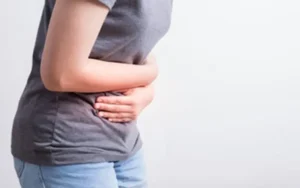Have you ever experienced that tight, uncomfortable sensation in your stomach after eating or even at random times throughout the day? Bloating can be quite bothersome, but is it always something to worry about? For many folks, occasional bloating is just a normal part of life. However, for others, it could indicate a more serious issue brewing in the gut.
If you find yourself frequently battling bloating, feeling weighed down after meals, or noticing shifts in your digestion, it might be a good idea to tune in to what your body is trying to communicate. Here’s what you should know and when it’s wise to consult a digestive health expert.
What Causes Bloating?
Bloating happens when your digestive system fills with gas or fluid. The reasons for this can range from completely harmless to potentially worrying:
- Eating too quickly or overeating
- Food intolerances (like lactose or gluten)
- Irritable Bowel Syndrome (IBS)
- Hormonal changes (especially in women)
- Constipation or poor gut motility
- Infections or gut inflammation
For most people, simple changes in diet and lifestyle can reduce bloating. However persistent symptoms may be worth investigating.
When Bloating Could Signal a Bigger Issue
If your bloating is chronic or comes with other symptoms, it may indicate an underlying digestive condition. Warning signs include:
- Bloating that doesn’t improve with diet changes
- Significant weight loss without trying
- Blood in the stool
- Severe abdominal pain
- Frequent diarrhoea or constipation
- Feeling full quickly after eating
These could point to conditions like:
- Coeliac disease
- Crohn’s disease or ulcerative colitis
- Ovarian issues (in women)
- Gastrointestinal infections
- Small intestinal bacterial overgrowth (SIBO)
What a Digestive Specialist Can Do
Visiting a digestive health expert can help get to the root of the problem. They may recommend blood tests, stool samples, or imaging to rule out issues. Based on your symptoms, they might also suggest an elimination diet or probiotics to rebalance your gut.
Personalised advice is key to a comfortable treatment journey, since bloating can have so many causes, a tailored approach works better than general remedies.
Everyday Tips to Ease Bloating
If your symptoms aren’t severe but still bothersome, try these daily changes:
- Eat slowly and chew food properly
- Avoid carbonated drinks
- Limit processed foods and artificial sweeteners
- Stay hydrated and active
- Keep a food diary to track triggers.
Final Thoughts
Occasional bloating is usually not concerning, but ongoing symptoms deserve attention. Listening to your gut literally can lead to better long-term health. Don’t let daily discomfort become your norm.
Feeling bloated more often than not? It may be time to consult a digestive health specialist and discover what is happening. Schedule an appointment with Digestive Clinic today.










